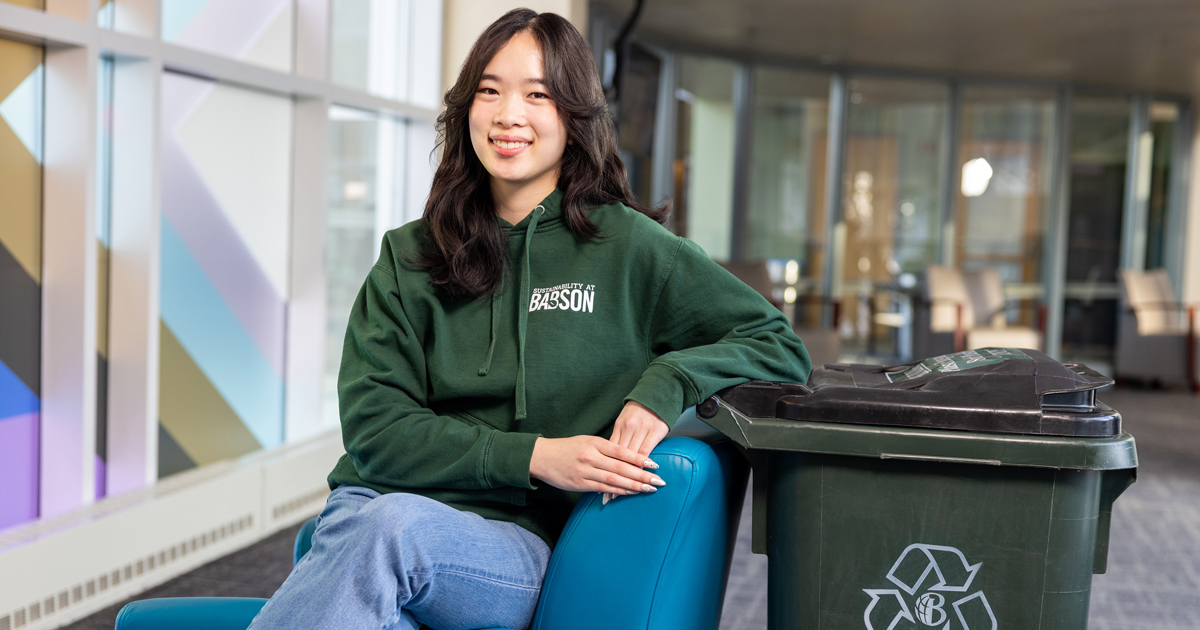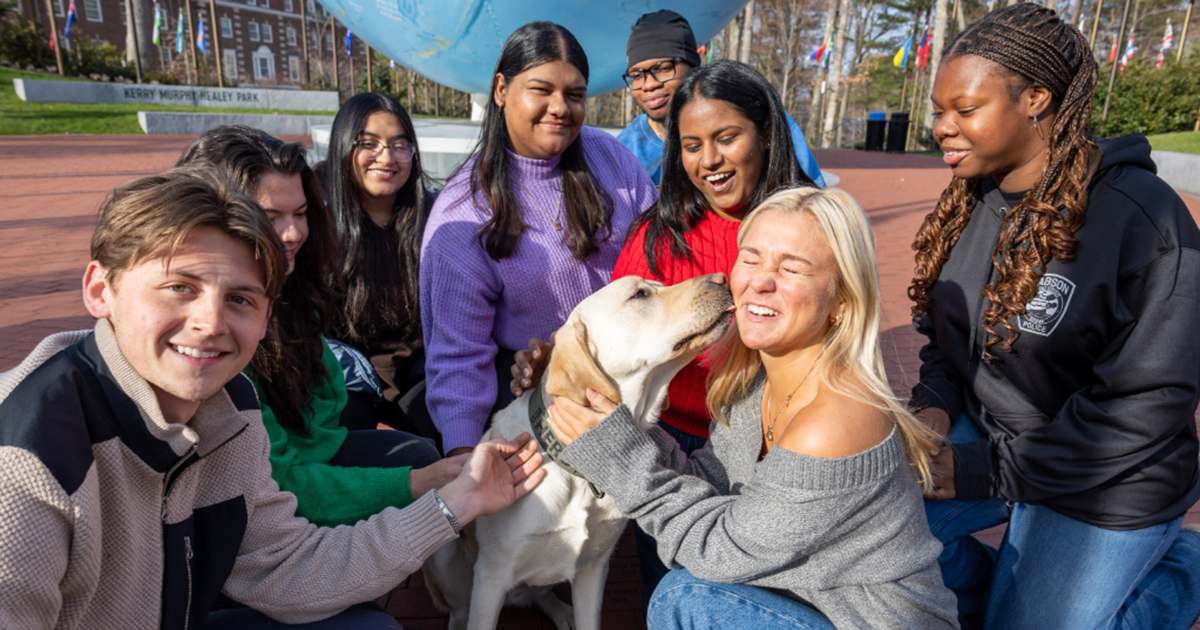How One Student Drives Real Change Through Sustainability

From her first steps on Babson’s campus as an international student from Singapore to her leadership in sustainability efforts on campus and beyond, Natalie Chong ’25 has demonstrated her entrepreneurial leadership skills in proving that business and sustainability are not mutually exclusive.
Chong’s journey to Babson was sparked by inspiration close to home. During high school, she learned about a Singaporean entrepreneur who introduced frozen yogurt to the country, adapting the business model to fit local culture. The moment ignited a passion for entrepreneurship.
But it was in Babson’s signature Foundations of Management and Entrepreneurship (FME) course that Chong’s interest in sustainability took root. As a first-year student, she and her team developed a venture centered on reusable cotton pads, aiming to offer a sustainable alternative to single-use products.
BABSON MAGAZINE: Read the complete Spring 2025 issue.
“That project really opened my eyes to how business and sustainability can coexist,” Chong says. “I realized that entrepreneurship isn’t just about profit—it’s about solving real problems.”
The experience introduced her to Babson’s Sustainability Office, where she would lead several campuswide sustainability initiatives that challenge students to reconsider their environmental impact. One of the earliest projects, Slash the Trash, encouraged them to collect and analyze their weekly waste, sparking eye-opening conversations about recycling and consumption habits. “When students physically see how much waste they produce, it changes their perspective,” Chong says.
Another initiative she championed, soft plastic recycling, emerged from her frustration with the sheer volume of Amazon packaging waste on campus. Recognizing that most large-scale recycling facilities do not process soft plastics due to machinery constraints, she helped launch a collection program that diverted nearly 70 pieces of plastic in just two weeks. “It started as a small experiment,” she says, “but now we’re talking about a long-term solution.”
Her impact extends beyond waste reduction. Working with Babson’s dining provider, Chartwells, Chong helped lead a food waste awareness campaign at Trim Dining Hall. By weighing students’ leftover food, the initiative provided tangible data on food waste while fostering discussions on consumption habits. “It’s not just about reducing waste,” she says. “It’s about making people more mindful of their choices.”
Chong’s influence is not limited to Babson’s campus. Last summer, she interned with the World Wide Fund for Nature (WWF) in Singapore, working on supply chain transparency and circular economy initiatives. “My time at Babson has shown me that businesses have a responsibility to lead the way in sustainability,” Chong says.
Through her senior thesis, Chong is examining how sustainability is integrated into FME, highlighting how first-year students navigate the intersection of profit and environmental responsibility. Her findings reinforce the notion that sustainability can be an opportunity for innovative business solutions.
“If you can make sustainability profitable,” she says, “that’s when real change happens.”
Posted in Entrepreneurial Leadership






